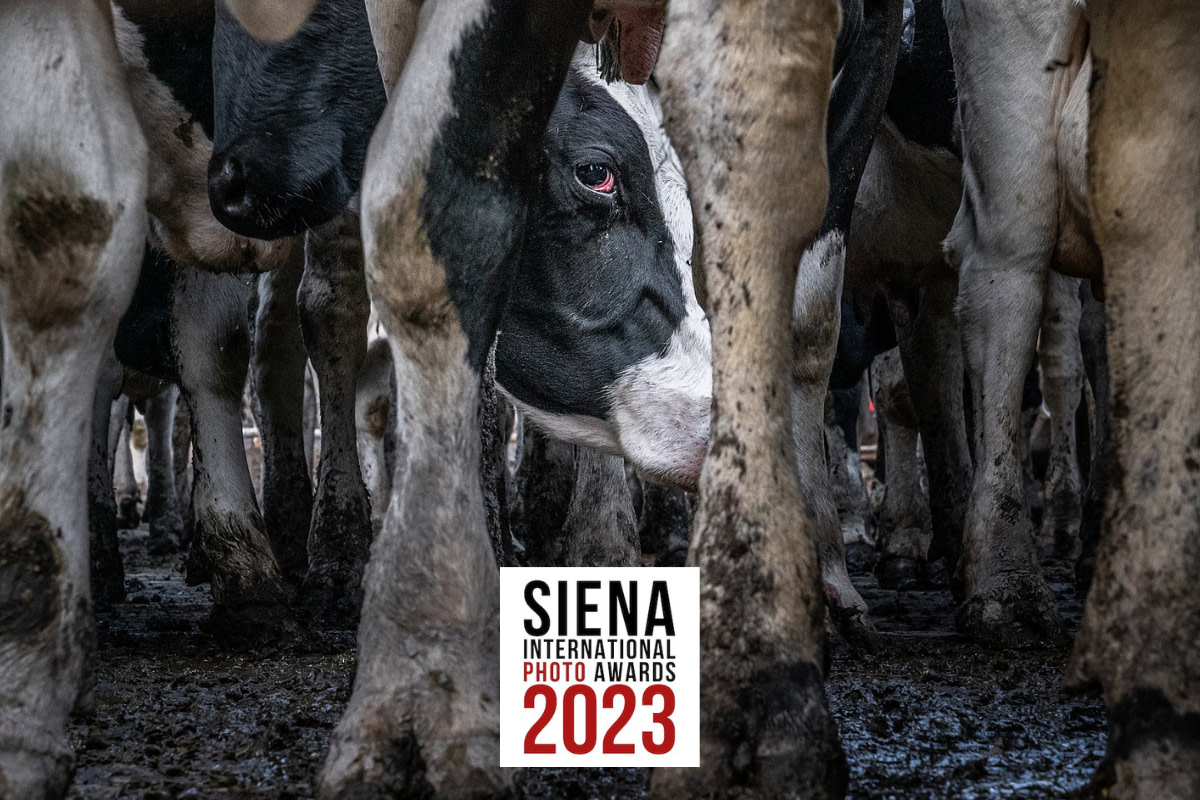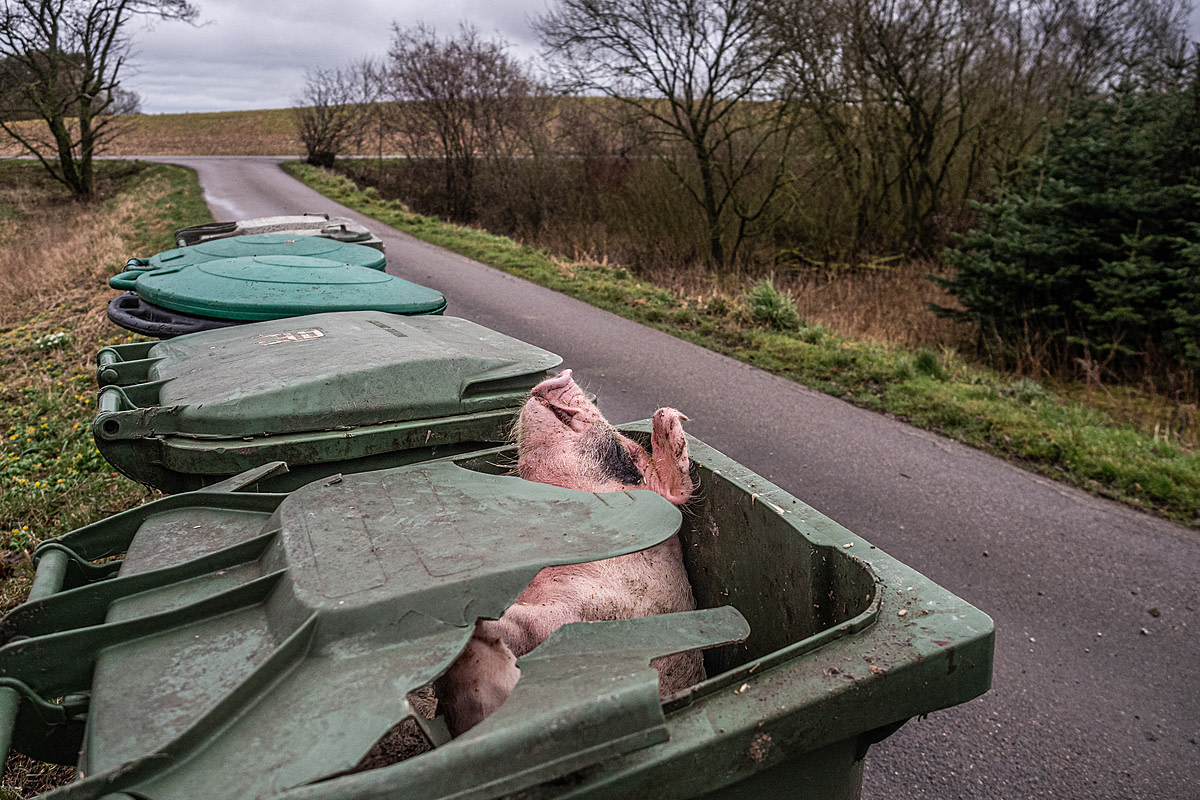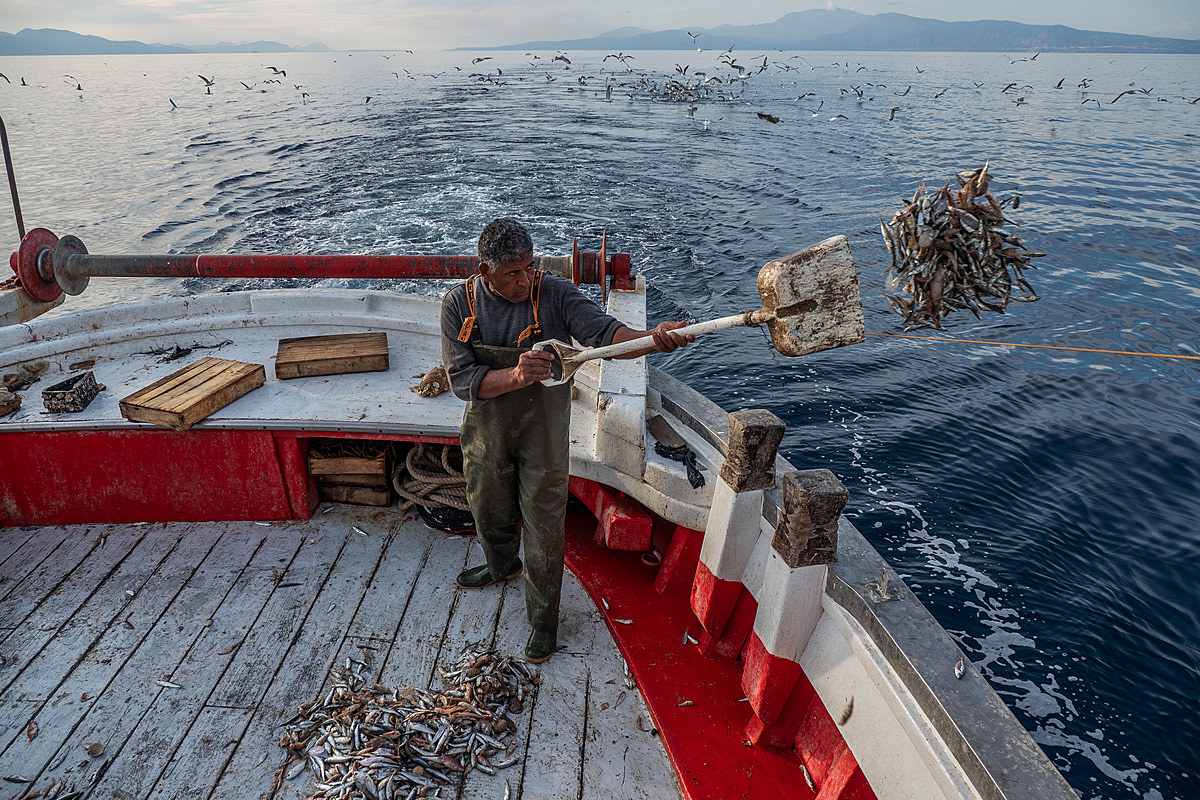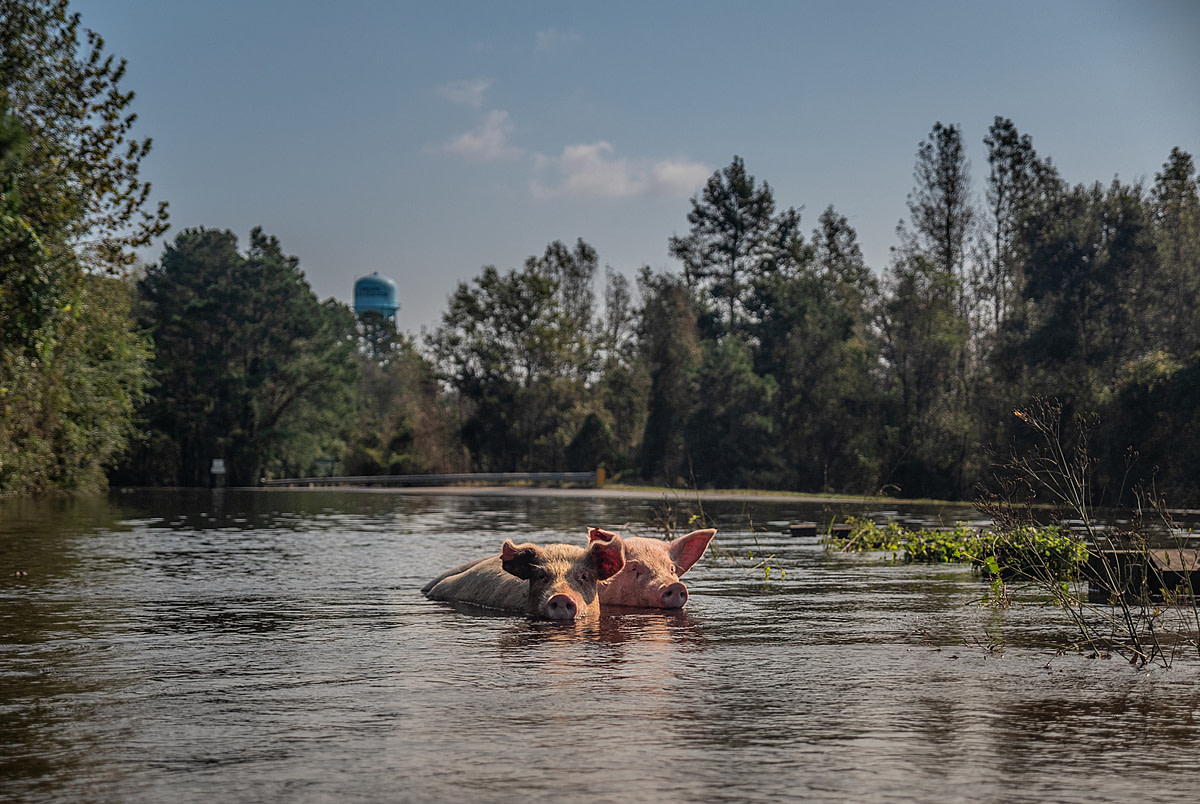This month we’ve got big news on our progress with getting underreported animal stories on the global stage. A collective of We Animals photojournalists have been awarded Honorable Mentions in the Siena International Photo Awards 2023.
Set amidst the stunning backdrop of Siena city in Italy, this year’s awards ceremony and festival attracted an international community of photographers, editors, jurists, artists and more. The event received approximately 45,000 submissions from professional and amateur photographers across 154 countries. A massive congratulations to all of the winning photographers for their moving and thought-provoking work, including fellow photojournalists Aaron Gekoski, Marcus Westberg, Fernando Faciole, Morgan Heim and Britta Jaschinski.

Photo: SIPA Awards
We Animals’ photojournalists were awarded in the categories of Storyboard and Video.
Honorable mention - Storyboard category: Animals in the Anthropocene
Photographers: Aaron Gekoski, Jo-Anne McArthur, Lissy Jayne, Selene Magnolia, Seb Alex, Kelly Guerin
The animals in this series are those with whom we have a close relationship and yet so often fail to consider or see. There is an emerging genre of photography called animal photojournalism, which aims to emphasize the inclusion of these animals, particularly those historically underrepresented. It acknowledges their beinghood and brings their stories to light, highlighting how they are intertwined with other important stories of our time, such as climate change, human rights, and stories of hope, healing and progress.
Our contributing photographer Aaron Gekoski describes how he took his memorable image of a deceased dog at a market in Cambodia:
Most of the time (quite rightly), us conservation photographers put the spotlight solely on our subjects. However, sometimes the story behind the imagery can be just as interesting. Like what it took to capture this shot. I was on assignment for Four Paws International covering Cambodia’s thriving dog meat trade, where up to three million dogs are killed every year.
At this restaurant in Phnom Penh, they receive dog carcases from slaughterhouses all over Cambodia. After having her fur removed, this particular dog was left in a pool of her own blood. I was captivated by how she looked so at peace, despite her brutal end: a perfectly preserved dog angel. In order to tell her story, I wanted to capture a clean, symmetrical image that highlighted her pose, which no longer resembled a living creature. This was a dog’s soul. To do this, I had to pull out chunks of flesh and fur from the water with my hands and stand on a wobbly foot stool to shoot from above. Staff from Four Paws held both arms to stop me falling. I used a 35mm f2 prime lens for optimal quality and due to the low light.
The image required only a little post production such as a touch of vignette to bring the eye towards the centre, plus some clarity to emphasise certain details and a little clone stamp to clean up what I missed with my fingers. The result was even more impactful than I’d envisaged. It might not always be the most glamorous job, but when you can tell an entire story in a single image – one that is then seen all over the world – it makes you forget about the sleepless nights, bloodsoaked hands, and mental turmoil that went before it. — Aaron Gekoski, photojournalist and filmmaker
A distressed chicken hangs upside down with her mouth agape as a worker attaches her to a processing line at a halal slaughterhouse. Indonesia, 2022.
Seb Alex / We Animals
Photographer and activist Seb Alex describes his experience taking this photo of a chicken inside a slaughterhouse, which formed part of his 2022 Animal Photojournalism Fellowship portfolio:
We kill around 202 million chickens every day around the world, that’s more than 140 thousand chickens per minute. After documenting what happens inside chicken farms, I visited a medium size slaughterhouse to document their last moments. I had to stand as close as I could to the worker while he was hanging each chicken, but also be able to get the background in the shot to show the scale of what was going on. Most chickens fought as much as they could and tried to flee while being hung upside down. I hope viewers will have a moment of empathy while looking at this photo, and think twice about the impact of their food choices. — Seb Alex, photographer and activist
A worker onboard the fishing vessel Fasilis shovels fish back into the sea. During the sorting process, unwanted fish (bycatch) are sorted into piles on the deck, where they lay suffocating until they are eventually tossed back into the water. Many do not survive. Greece, 2020.
Selene Magnolia / We Animals
Learn more about the work featured in this photo story through our book HIDDEN: Animals in the Anthropocene.
Honorable mention - Video category: Moving Animals
Miguel Endara / Vidara Films / We Animals
Moving Animals is a powerful short film about Jo-Anne McArthur’s documentation of the long-distance transport of animals, shot and produced by filmmaker Miguel Endara. Together with the organization Eyes on Animals, our team spent a week at the Bulgarian-Turkish border, documenting a glimpse of the millions of animals who are transported south for slaughter.
Receiving any recognition from any photo and film festival means that the topic of animal cruelty is being moved to the forefront of photojournalism, and that will always bring me an immense amount of joy. — Miguel Endara, filmmaker
View all category winners here.

Our Senior Fellow Selene Magnolia and Founder Jo-Anne McArthur by our storyboard at the SIPA 2023 exhibition. Photo: Javier Aznar.

Our Senior Fellow Selene Magnolia signing the SIPA 2023 ‘Beyond the Lens’ photo book. Photo: Jo-Anne McArthur
We Animals’ images were some of the Highly Commended images announced on 30 September alongside this year’s prize-winners. These visuals will be on display across the city of Siena until 19 November.
I’m grateful to the SIPA community for recognizing the stories of domesticated animals. Like wild animals, they are intelligent and emotional beings, negatively affected by the growth mindset of human economies that are laying waste to this beautiful planet. All of us living in the here and now deserve our stories to be seen and told. – Jo-Anne McArthur, We Animals Founder and animal photojournalist

(Left to right) Jo-Anne McArthur, Selene Magnolia, Morgan Heim, Britta Jaschinski, Steve Winter and Fernando Faciole. Photo: Javier Aznar
For more information on this year’s festival and awards, visit www.sienawards.com.
Did you know? Our stock platform offers 30,000+ photos and video clips of animal issues around the globe. Non-commercial (free) and commercial licensing available.









